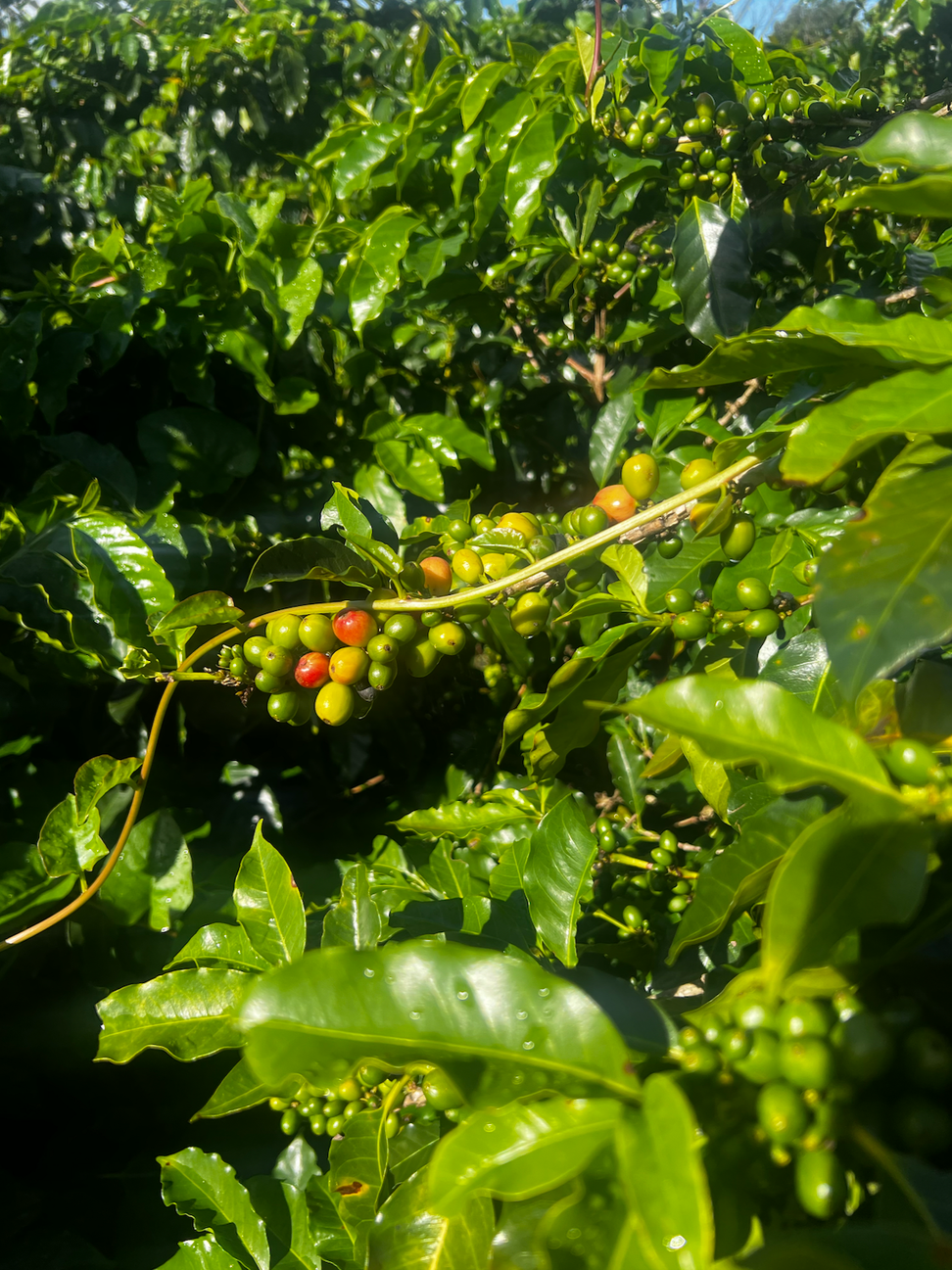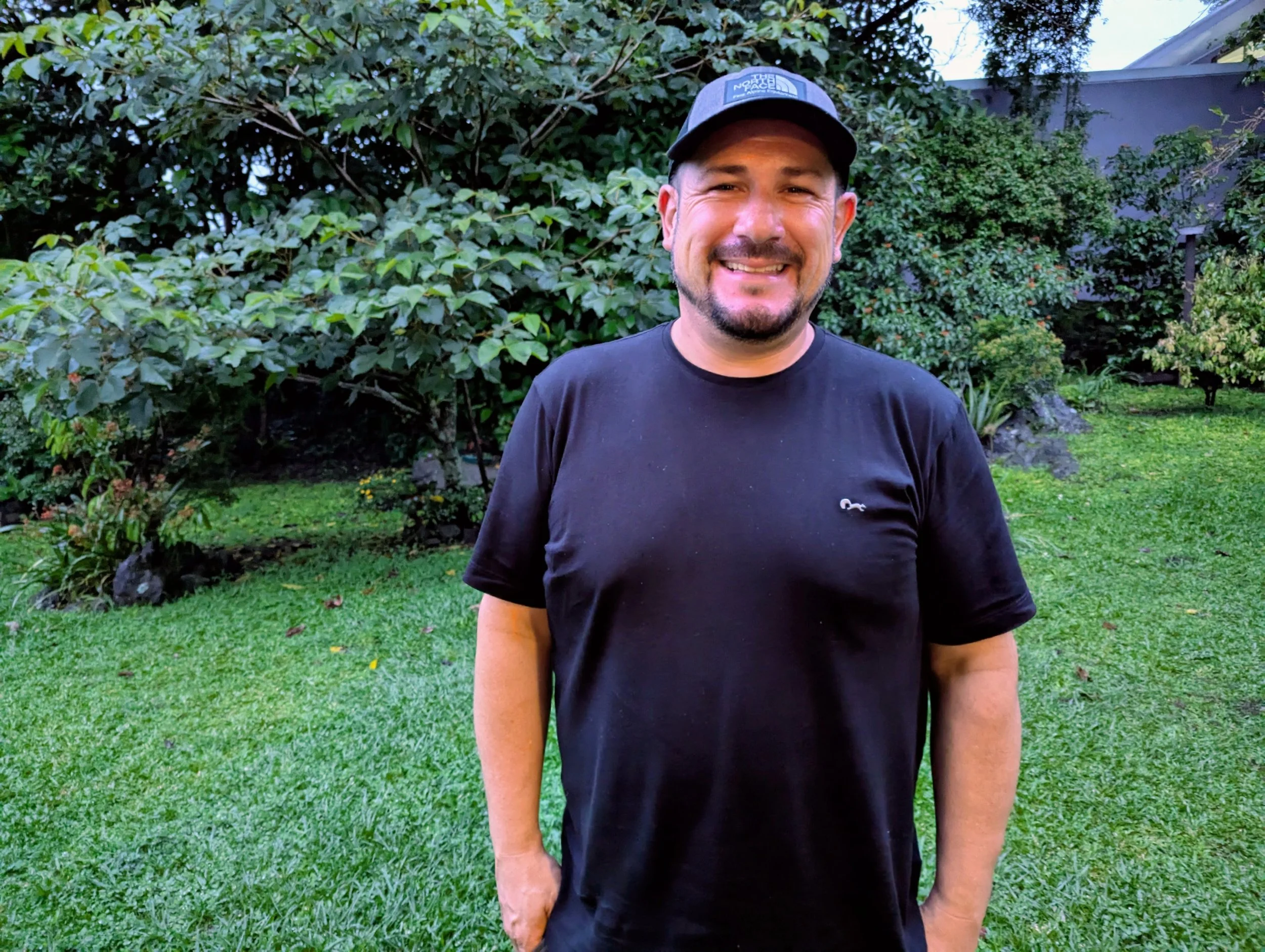Coffee That Creates: Opportunity. Equity. Sustainability. Futures.
“Only 10% of our farmers are under the age of 40,” Felix says, translating what Guillermo has just said in Spanish. “This is a real problem.” I nod my head. This is a problem. And that’s why I’m here. In San Jose, Costa Rica. Meeting with the CEO and other employees of Coop Libertad, a cooperative company working to empower small coffee growers facing economic and social injustice in the Central Valley. We are hoping together to address inequality and the aging crisis within the coffee industry.
The average age of Latin American coffee farmers is 55; in some African regions it’s nearing 60, yet less than 5% of the world’s farmers are under 35. The problem is obvious. As farmers age out, young people are not taking over. Soon, we won’t have enough supply to meet demand, which continues to rise, with the United States leading the way as the largest consumer in the world. The Columbia Center for Sustainable Investment projects a 25% increase in coffee demand by 2030.
At our current production rate, we will face a supply shortage of 40 to 50 million bags in just five years.
I take a sip of the coffee Felix poured me, lime bursting across my tongue. Beyond the open garage door are hills of emerald-colored crops, most of them coffee plants, growing on top of each other. I breathe in thick, rain-soaked air that smells like wet earth and brown sugar. My mind contemplates what a world without coffee would be like. I clutch my cup closer to my chest.
With the barriers coffee farmers are facing — market volatility, climate change, economic instability and low wages — it may seem like youth are making the right decision in exiting the industry. Migrating to larger cities means less physically demanding jobs, higher wages and the promise of brighter futures. However, investigate deeper and you’ll find that many young people don’t want to leave; they just need it to be a more attractive option to stay.
So how do we make it a more attractive option?
Coop Libertad is working to answer that question. Through their innovative Cafe Juventud program, or Youth Coffee, they provide training in sustainable production and processing techniques to help young farmers make their businesses more productive. The producers sell their coffee with a 20-cent premium, and they must reinvest it back into their farms to continue increasing profitability. Currently, forty-five young producers, aged 20-40, have enrolled in the program.
One of whom is Mario Barquere, who agrees to speak with me on my last night in Costa Rica. Felix picks me up in his work truck, and we bounce down the road, dipping over chunks of gravel and large rocks.
“You’re probably ready to be done with me, aren’t you Felix” I joke, looking out the window. Thick fog blanketed the trees, giving everything an unearthly, magical feel.
“No, no, never,” he smiles back, shifting the gearstick as we stutter over another rock. He has been a gracious host, and though it’s only been a few days, it seems like we’ve been working together forever.
We duck under our arms and run through rain as Mario welcomes us into his house. Kicking off our shoes, we sit ourselves along a long, wooden table with plates of desserts on it as he brews us a cup of coffee. I ask if this is his own coffee he’s grown. He nods his head with eagerness, handing me the cup. I cradle it in my hands as steam curls around my face. Taking a sip, I closed my eyes as notes of citrus, honey and chocolate coat my mouth.
For farmers like Mario, maintaining the legacy of their family’s land and the deep roots they have in coffee draws them to stay in the industry. His farm has been in the family for sixty years. In his early thirties, he and six other younger family members took over for their parents, all of whom were nearing 70. United in their connection to the land and familial legacy, they took on the daunting task of trying to make it profitable. I think of how I started Wildflyer out of the grief of my mom’s death and a desire to honor her legacy. How often children follow in their families’ footsteps. How important that bond is. I understand the sacrifices he has made to stay in his family’s coffee business, though it may look odd to outsiders.
Mario acknowledges he could work at any of the larger companies dotting the Costa Rican landscape, making more and struggling less. But for him, “money is not everything,” and he prioritizes the balance he has found working in the open spaces on his farm. For many people, “how rich you are, it is measured by not just how much money you have; it’s by the way you live,” he tells me. I am mesmerized by the green leaves as big as elephant ears swaying in the breeze behind him. I can see what he means. It’s peaceful here. I’m not ready to leave.
He expressed that the support of Coop Libertad has been invaluable.
With the help of Cafe Juventud’s program, he used his premium to invest in improving conditions for workers on the farm, becoming more efficient in their growing processes, and upgrading machinery. This last change resulted in 30% less gasoline consumption, easing a burden on the environment and his pocketbook. His eyes light up as he tells me this.
“If we can improve conditions, better income, new technologies, things that help improve productivity, more young people will stay on the farms.” He said, enunciating each word with confidence. His passion is clear. And contagious. I doubled down on my commitment to this collaboration.
At the heart of our partnership is the knowledge that young people are the future. Wildflyer is part of a global supply chain, and the youth who harvest our coffee are already part of Wildflyer; we just aren’t treating them like that yet. Something I’m determined to change by integrating our mission across the supply-chain.
Through this coffee, young people in Minneapolis are receiving employment training, life skills and job opportunities. Across states, countries, languages and borders, the same is happening in Costa Rica.
At the end of our interview, I asked Mario the same question I ask Wildflyer youth at the end of our interviews.
“What is one thing you want the world to know about Costa Rica coffee and its farmers?”
He sat back in his chair, arms crossed, and thought for a second. I have grown used to not filling the silence of interviews; it’s in that awkward space that the truth spills out.
“Many people don’t know all the work and effort behind a cup of coffee. Trying to explain more about what a coffee farmer has to do to produce coffee is something that we need and would like out in the world.”
His words reminded me of what Lala, a graduate from 2023, had shared when I asked her the same question.
“Something I would like people to know about youth homelessness is that it’s hard, and it wears and tears just like a job would.
Behind their smiles, it’s clear that they both face a hidden world of hardships, but also of strength and determination. Despite their geographic, situational and cultural differences, they’re united by their stories, a global supply chain and a shared hand in making Wildflyer Coffee special.
Experience the bright sweetness and balanced charm of Costa Rica in every cup. This washed process coffee from the Central Valley delights with notes of candied pineapple, brown sugar, and buttery shortbread, showcasing the classic characteristics of a Costa Rican coffee: soft acidity, smooth body, and an all-around balanced flavor.
Beyond its exceptional taste, this coffee marks Wildflyer’s first relationship-based sourcing project. It’s produced by young farmers in the Café Juventud program through Coop Libertad in San José, Costa Rica, supporting growers aged 20–40 with technical training and capital. A portion of the proceeds from each bag sold goes directly back to the farmers, allowing them to reinvest in their farms. The program empowers these growers to take over family farms, increase profitability, and address the aging coffee farming population—creating a sustainable future for both coffee and community.
Notes: Candied Pineapple, Brown Sugar, Shortbread
Roast: Light
Process: Washed








